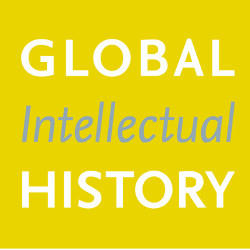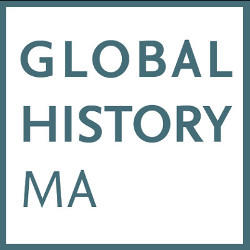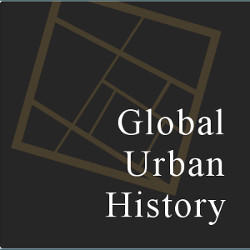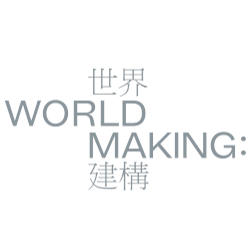Somei Kobayashi
Friedrich-Meinecke-Institut
Somei KOBAYASHI is a historian and a professor at Department of Journalism, College of Law, Nihon University in Tokyo, Japan. He received his BA, MA and Ph.D. from Hitotsubashi University, Tokyo, Japan. Prior to joining the faculty of Nihon University in 2015, he conducted research and education not only in Japan (The University of Tokyo etc.) but also in Korea (Seoul National University, Korea University, Kyung Hee University and Jeju Peace Institute), the U.S. (The University of Maryland and East-West Center in Washington), the U.K. (The University of Cambridge), China (Shandong University). From September 2022 to March 2023, he spent a time for research at Department of History, National Taiwan University as a visiting scholar.
His research includes modern Korean history, East Asia-the West relations in the 20th century, and historical reconciliation between Japan and Asian countries.
He teaches East Asian history from the perspective of media and journalism at Nihon University. Also, he takes charge of lectures related to Korean Studies at The University of Tokyo and Waseda University as a visiting lecturer.
De-centralizing the Cold War Studies: New Perspectives from East Asia
World War II (WWII), which ended in the mid-20th century, resulted in a tremendous loss of human lives and devastating sacrifices. Japanese citizens, along with the rest of the world’s citizens, aspired sincerely to attain international peace, based on justice and order. However, immediately after the end of WWII, a new war—the Cold War—erupted, splitting the world into two camps. The Cold War defeated citizen’s hopes for international peace, forcing them to live in an age of distrust and fear.
The Cold War continued for nearly half a century, and 30 years have passed since the end of the war. In the post-Cold War era, many scholars began to tackle research topics on the Cold War. As most studies focus on Europe and the U.S., some regions such as East Asia and Africa have not yielded sufficient attention in the field of Cold War studies.
My research analyzes the historical development of the Cold War from the perspective of East Asia. It sheds light on new aspects of the Cold War and de-centralizes Western-centered Cold War studies.
Media and Knowledge for the Analysis of U.S.-East Asia Interactions
In writing a new history of the Cold War in East Asia, my research project examines the interactions between the U.S. and East Asia. Particularly, I focus on the Republic of Korea (ROK), the Democratic People’s Republic of Korea (DPRK), and Japan. The research tackles two questions. First, how did the U.S. make an impact on the ROK, the DPRK, and Japan? Second, how did these countries make an impact on the U.S. during the Cold War? Two important actors, the general public and the intellectuals, come into the picture. First, the project analyzes the impact on the public by answering the question: “How did the national government utilize the media to win the hearts and minds of the public?” Second, the interactions are considered by tracing the process of knowledge production in the field of the social sciences, particularly, media/mass communication studies and the area studies. In my research, primary sources such as diplomatic records, private papers, and congressional records, from multiple archives in the U.S., the UK, Korea, Taiwan, Japan, and Germany (if possible), are investigated.
The findings of these studies provide clues to solutions of the social and international problems in today’s world from an historical perspective.
He is the author of Zainichi Chosenjin no Media Kukan: GHQ Senryoki ni Okeru Shinbun Hakko to Sono Dainamizumu, or Media Space of Koreans in Japan: Newspapers during the Allied Occupation of Japan and its Dynamism, and a co-editor of Knowledge Production in Cold War Asia: US Hegemony and Local Agency (forthcoming).
Recent Works:
Book Chapters
“For Unraveling Emotions Entangled in Japan-Korea Relations: Considering a Question of a Japanese Diplomat”, in Reconciliation and Justice as a Aporia: Idea, Theory and History, edited by Naoyuki Umemori, Akashi Shoten, Tokyo, 2023 (in Japanese)
“M. L. Osborn’s Experience on POW Orientation and Psychological Warfare as the Trans-War History”, in Writing a New Regional and World History: Methodology, Education Model and Case Study, edited by Dongju Hahm, Sunin, Seoul, 2023 (in Korean) ISBN: 9791160687835
“Radio and Propaganda Theory”, in Introduction to Media Sociology, edited by Mitsuo Ikawa and Tadamasa Kimura, Minerva Shobo, Kyoto, 2022 (in Japanese) ISBN: 9784623094271
“US Intelligence Agencies and G. M. McCune during the Pacific War, December 1941-September 1943: Focusing on the Activities of Missionaries and COI/OSS”, in Korean Independence Movement and the U.S. during the World War II, Institute of Korean Independence Movement, Sunin, Seoul, 2022 (in Korean) ISBN: 9788964688618
“The San Francisco Peace Treaty and Emotions: South Korean Society in the U.S. Occupation Era and 1950s, in The San Francisco Peace Treaty and East Asia, edited by Shin Kawashima and Yuichi Hosoya, The University of Tokyo Press, Tokyo, 2022 (in Japanese) ISBN: 9784130362856 (English edition, forthcoming)
Co-Edited Books
Cultural Cold War and Development of Academic Knowledge: The U.S. Strategy and East Asian Logic, with Yuka (Tsuchiya) Moriguchi and Shin Kawashima, Kyoto University Press, Kyoto, 2022 (in Japanese) ISBN: 9784814004379 (Chinese edition, forthcoming)
For more on my publications, refer to the website of researchmap database by Japan Science and Technology Agency.







